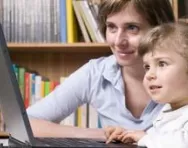Important update from TheSchoolRun
For the past 13 years, TheSchoolRun has been run by a small team of mums working from home, dedicated to providing quality educational resources to primary school parents. Unfortunately, rising supplier costs and falling revenue have made it impossible for us to continue operating, and we’ve had to make the difficult decision to close. The good news: We’ve arranged for another educational provider to take over many of our resources. These will be hosted on a new portal, where the content will be updated and expanded to support your child’s learning.
What this means for subscribers:
- Your subscription is still active, and for now, you can keep using the website as normal — just log in with your usual details to access all our articles and resources*.
- In a few months, all resources will move to the new portal. You’ll continue to have access there until your subscription ends. We’ll send you full details nearer the time.
- As a thank you for your support, we’ll also be sending you 16 primary school eBooks (worth £108.84) to download and keep.
A few changes to be aware of:
- The Learning Journey weekly email has ended, but your child’s plan will still be updated on your dashboard each Monday. Just log in to see the recommended worksheets.
- The 11+ weekly emails have now ended. We sent you all the remaining emails in the series at the end of March — please check your inbox (and spam folder) if you haven’t seen them. You can also follow the full programme here: 11+ Learning Journey.
If you have any questions, please contact us at [email protected]. Thank you for being part of our journey it’s been a privilege to support your family’s learning.
*If you need to reset your password, it will still work as usual. Please check your spam folder if the reset email doesn’t appear in your inbox.
Home education: what could it offer your child?

It is estimated that around 50,000 families in the UK have opted to home educate their children, including mother of two, Beverley Riley. “The decision we made to home educate our children is a decision that we continue to uphold because we observe with delight the development of our children, not only from an academic stand point, but also on an emotional, social, practical, and spiritual level.”


Free home education planning pack & resources
- Guidance, templates & advice
- Practical tips from experts and parents
- How to establish a routine and set goals
Ben and Hannah Riley (10 and 12) appear to be happy, well-rounded individuals. Both are keen musicians – Ben on the drums and Hannah on the piano. They meet up with similar aged children each week, while also meeting once a month with a home education group for various activities.
Why choose home education?
According to Home Education Advisory Service (HEAS) the most common reasons for a parent to choose home education are:
- Their child has problems with the school environment, e.g. bullying
- Their child refuses to attend school
- They failed to get their child into the school of their choice or they live too far away from a suitable school
- The child learns differently to the norm, or has a learning difficulty or disability
- They have philosophical issues with the way education is carried out in schools
- They believe they can do a better job of educating their children than schools
- They have religious or cultural emphases that they want their children to inherit
- They enjoy life together as a family and want to minimise separation – especially while the children are young
Home educated children
Clearly an individual education would suit a child who does not ‘fit’, but will it help them to fit in later on in life?
Beverley Riley’s children are clear testaments to the claims by home educators that their pupils are generally very sociable, confident and outgoing young individuals. Home educated children are strongly encouraged to take up hobbies in order to satisfy their social needs. As a result many friendships are born out of common interest rather than dictated by age and gender.
Cathy Koetsier of HEAS also believes that home education will stand children in good stead for future employment: “Home educated children tend to have plenty of contact with people in a real ‘living’ context. They accompany their parents on shopping expeditions. They are exposed to and interact with adults whose work and interests may be very stimulating and useful for their development.”
Home education: the financial implications
Perhaps the biggest potential drawback for parents considering home education is the cost, as there is at present no form of financial aid. That said, there’s a lot of potential to save money, too, not having to shell out for uniforms, bus passes, lunch money and so forth.
Home education: next steps and further information
It will be years before we can gauge the effects of home education on individuals as they move into adulthood. In the meantime, however, home education is getting more popular in the UK, and the current crop of graduates appears to be upbeat, outgoing and ready to take on the world.
For detailed advice about all aspects for home education, from the local legalities in England, Wales, Scotland and Northern Ireland to the challnges of home-educating siblings of different ages or a child with special educational needs, look through the articles on TheSchoolRun's Home education hub.








